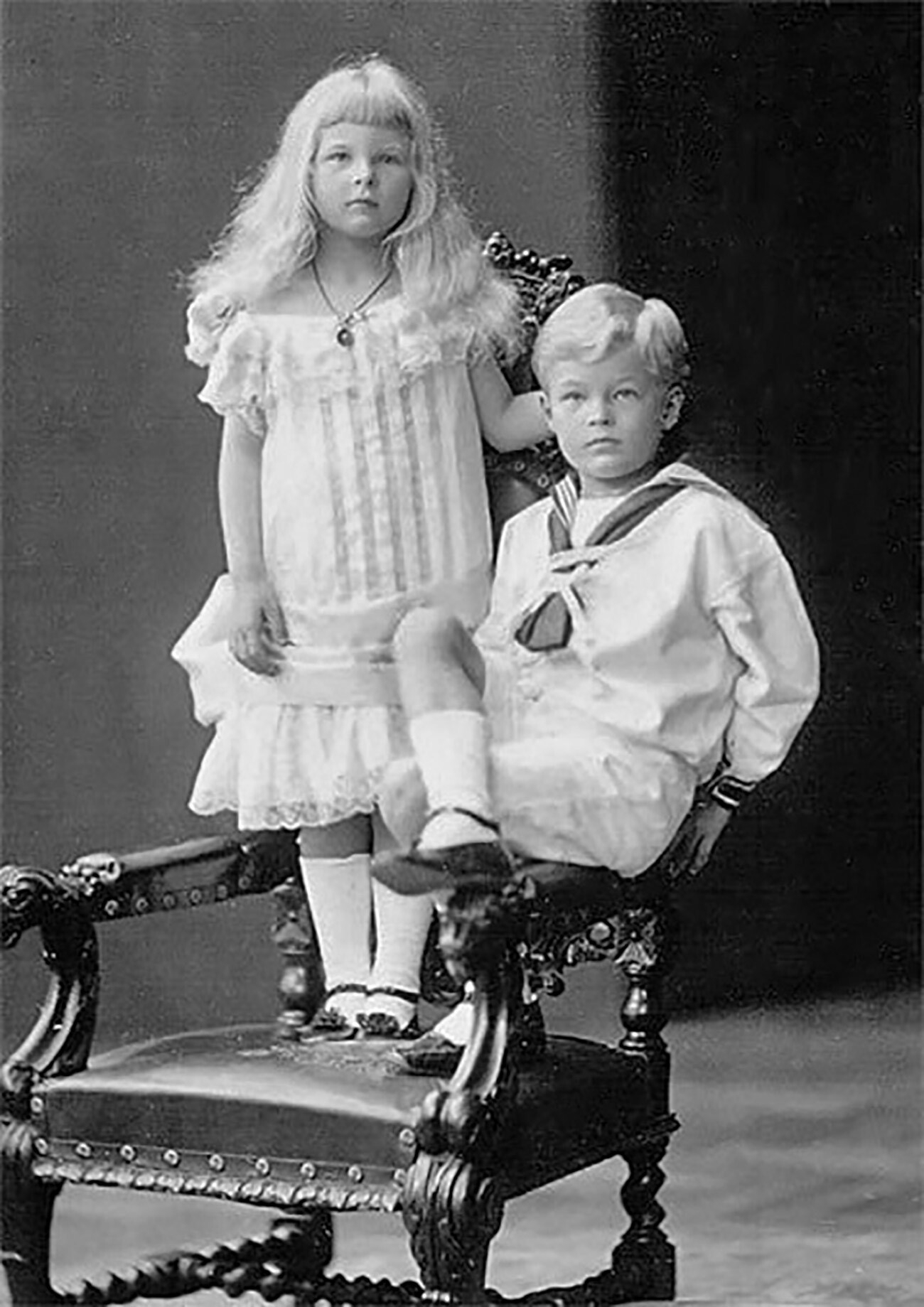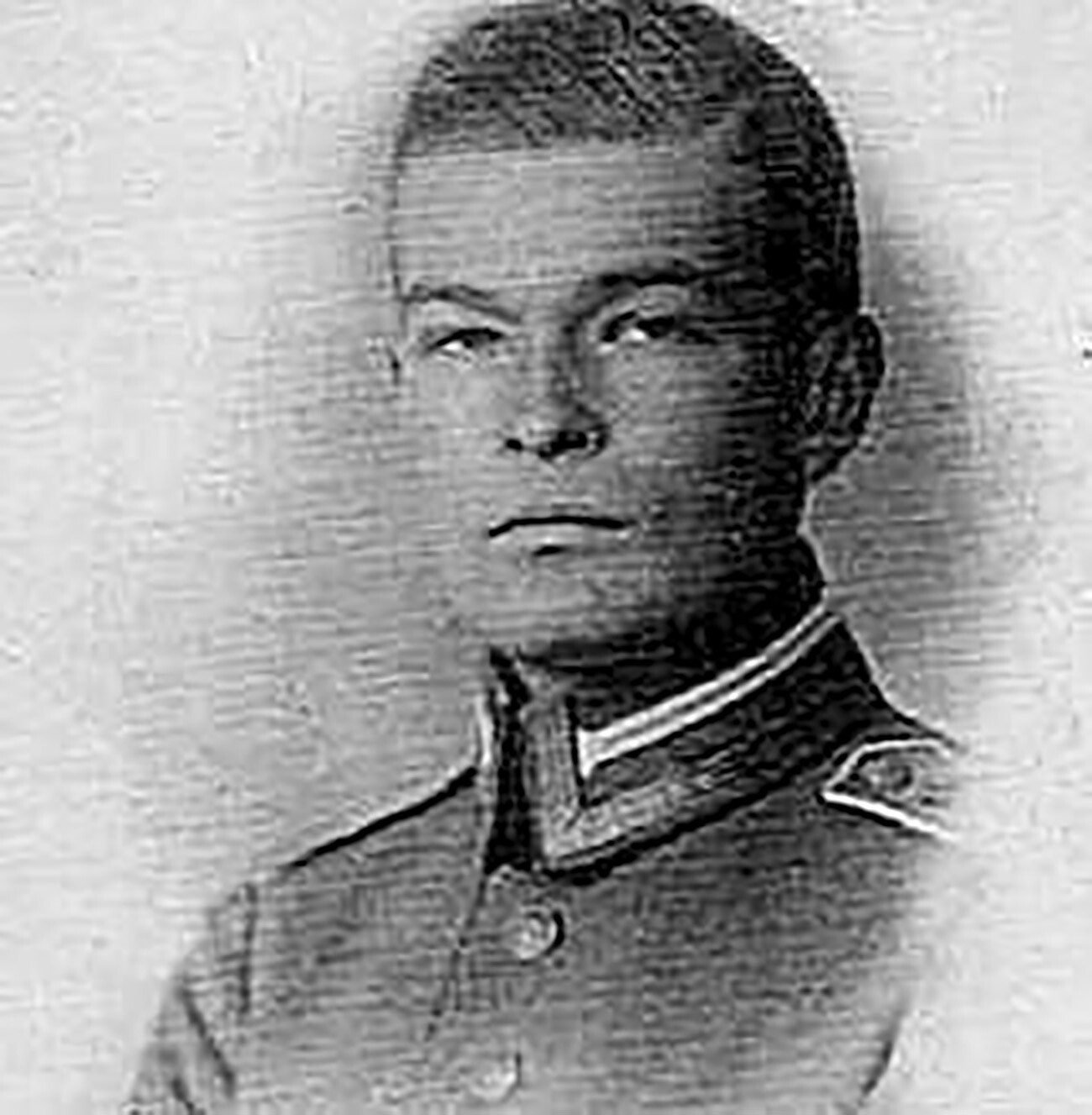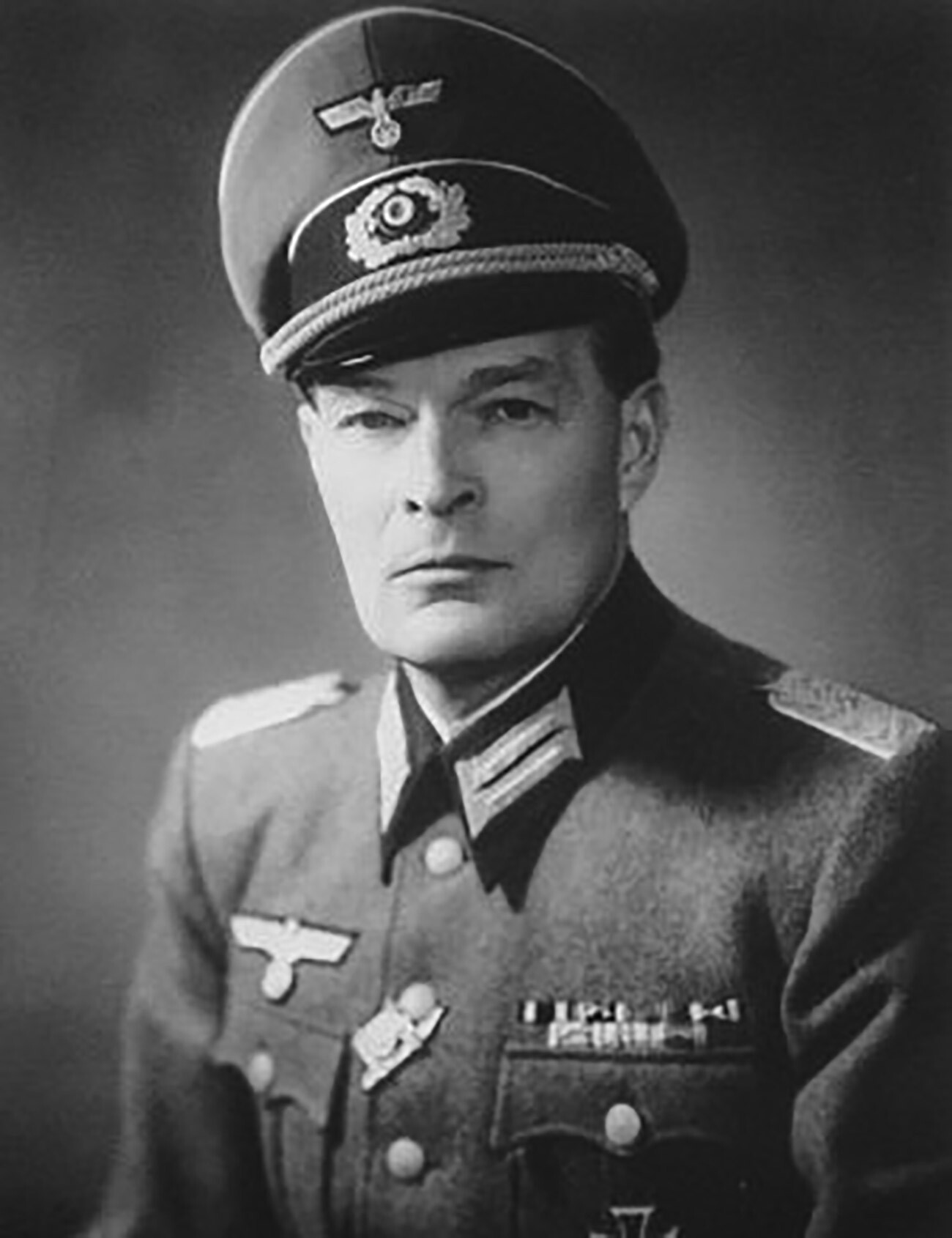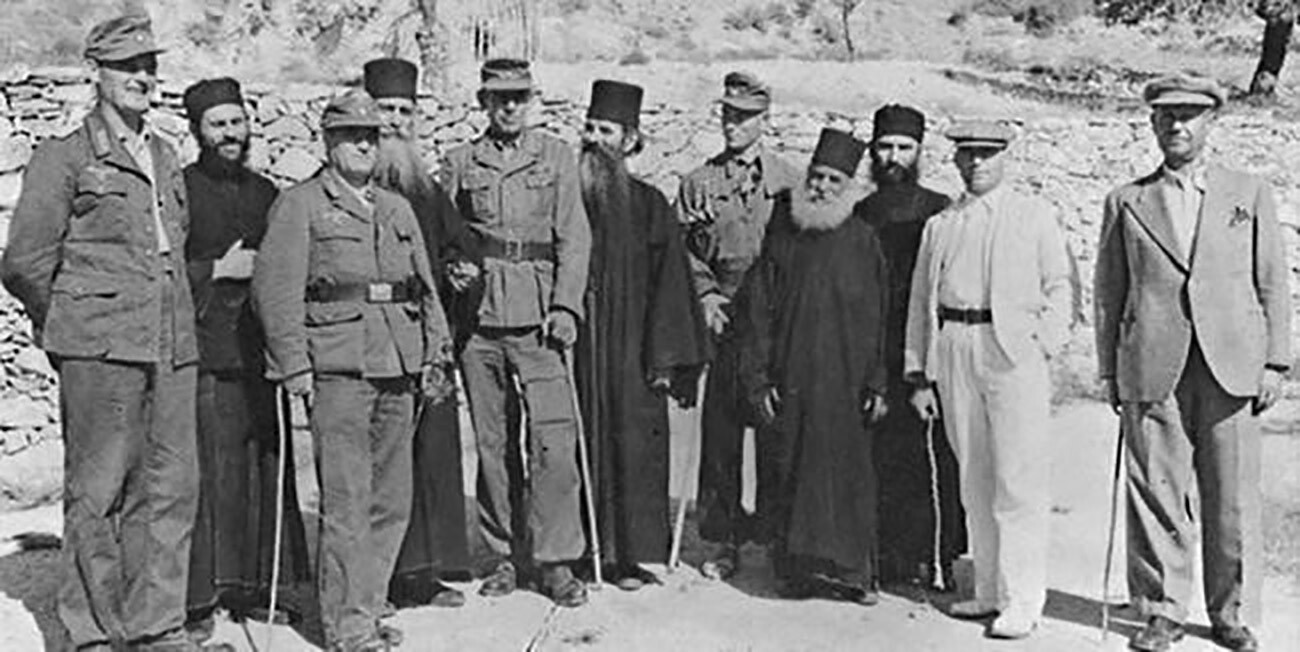
Poet Alexander Pushkin had a grandson; Emperor Alexander II had a daughter. The two met in Côte d’Azur in 1895. He was 24; she was 22. They had a son named Georg-Michael Alexander von Merenberg.
The child was a cousin of last Russian Emperor Nicholas II and could have lived an aristocratic lifestyle, but two world wars determined his life instead.
Count Georg-Michael Alexander von Merenberg was born in Hanover on October 16, 1897. Unlike his father, who did not speak Russian, his son mastered the language of his ancestors.

Georg-Michael Alexander von Merenberg with his sister. Circa 1900.
Public domainAlthough Georg-Michael Alexander von Merenberg wanted to become a doctor, he abided by the tradition of the time that prescribed the aristocracy to build a military career.
When World War I started, von Merenberg’s father pulled some strings for him and his son to serve on the Western front, so that they wouldn’t have to fight against the Russians. However, the then 17-year old Georg-Michael ended up in France as a prisoner of war very soon. This is how World War I would end for him.

Georg-Michael Alexander von Merenberg in 1917.
Public domainAfter the hostilities ceased, von Merenberg returned to his native country, only to experience the devastating effect of the war on the German economy. Hyperinflation had ruined the family’s fortune. The family had to rent out their apartments in Wiesbaden to make ends meet.
Soon, the rise of the Nazi regime and the outbreak of yet another world war made the troubles of the recent past seem trivial.
A few years after World War II started, von Merenberg was drafted to the German army and sent to fight on the Eastern front. The grandson of the Russian Emperor was assigned to serve in a ground unit of the German air force known as the Luftwaffe.

Georg-Michael Alexander von Merenberg in a Wehrmacht Major's uniform. Circa 1944.
Public domainVon Merenberg’s military career stalled, however, because of his apparent dislike of the Nazi ideology. As a form of punishment, von Merenberg was dispatched to a remote Greek isle of Paros in the Aegean Sea.
A legend has it that the descendant of the Russian and European aristocratic families risked his life to save 125 innocent residents on the island.
According to a recounting of the story in Russian mass media, the Nazis had started the construction of a new military airfield on the island and quickly came to the attention of British commandos monitoring via radar, who attempted an assault on their position while assisted by local partisan fighters on May 16, 1944.
As the German commander of the island garrison was injured during the raid, von Merenberg was temporarily put in charge of the German contingent on the island. To retaliate against the attack on the airfield, the German higher command demanded that 125 men belonging to the local community be executed. As the senior officer on the island, von Merenberg was charged with carrying the cruel sentence out.
Desperate locals appealed for help to Archimandrite Philotheos, the abbot of the Longovarda Monastery. Legend has it that the abbot and the descendant of the Russian aristocracy came to the negotiating table to figure out together how the execution could be aborted without enraging Berlin.

Georg-Michael Alexander von Merenberg and Greek monks on a Greek isle of Paros.
Public domainAccording to the story, von Merenberg was, eventually, persuaded to take a personal risk of canceling the order to kill the innocent men. The descendant of Pushkin and the grandson of Russian Emperor Alexander II decided to take a personal risk in sparing the innocent people, asking the abbot to guarantee that the locals would not attempt to attack the airfield again.
After the war was over, von Merenberg returned to Germany. He died in 1965. It is believed that he did not recount this story to anyone and it only became public in 2010, thanks to a publication of a journalist named Katherine Clark in 2010.
A scan of the publication is available on the Internet. However, we cannot attest with certainty to the authenticity of this document.
Dear readers,
Our website and social media accounts are under threat of being restricted or banned, due to the current circumstances. So, to keep up with our latest content, simply do the following:
If using any of Russia Beyond's content, partly or in full, always provide an active hyperlink to the original material.
Subscribe
to our newsletter!
Get the week's best stories straight to your inbox